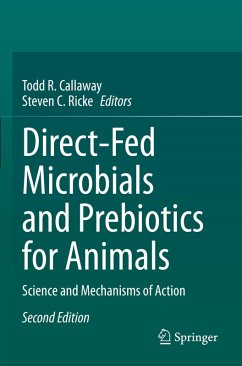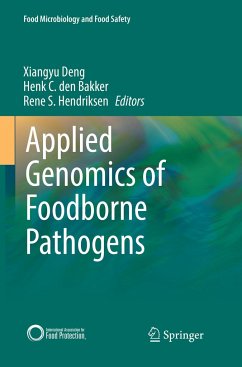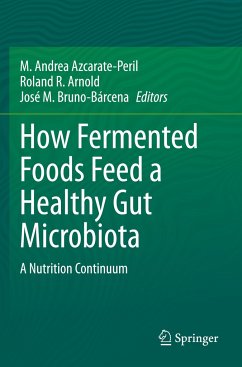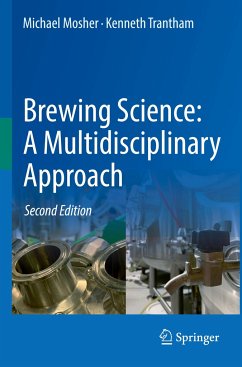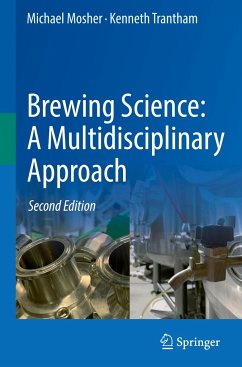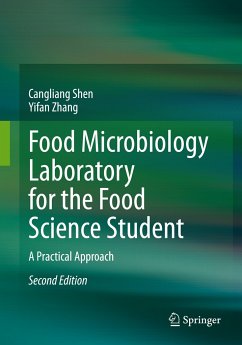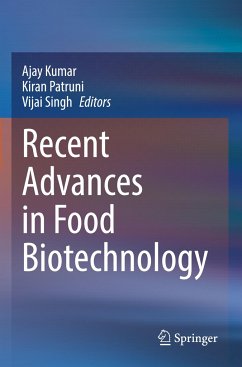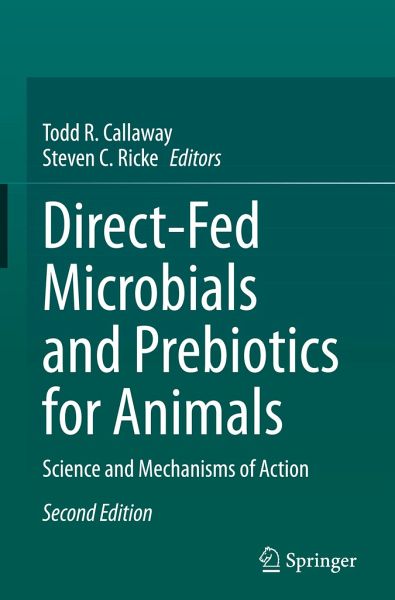
Direct-Fed Microbials and Prebiotics for Animals
Science and Mechanisms of Action
Herausgegeben: Callaway, Todd R.; Ricke, Steven C.
Versandkostenfrei!
Versandfertig in 6-10 Tagen
151,99 €
inkl. MwSt.

PAYBACK Punkte
76 °P sammeln!
In this exciting update, readers will learn how feeding direct-fed microbials (including eubiotics, postbiotics, prebiotics, and synbiotics) is becoming increasingly widespread during food animal production. Animal production must improve efficiency of growth, and the use of direct-fed microbial and prebiotic additives to domestic animals has become widely accepted and utilized. The benefits of probiotic-type approaches in cattle, pigs, fish, and poultry, include improved general animal health, reduced foodborne pathogen populations, increased growth rate and feed efficiency, improved milk and...
In this exciting update, readers will learn how feeding direct-fed microbials (including eubiotics, postbiotics, prebiotics, and synbiotics) is becoming increasingly widespread during food animal production. Animal production must improve efficiency of growth, and the use of direct-fed microbial and prebiotic additives to domestic animals has become widely accepted and utilized. The benefits of probiotic-type approaches in cattle, pigs, fish, and poultry, include improved general animal health, reduced foodborne pathogen populations, increased growth rate and feed efficiency, improved milk and egg production, and have been reported world-wide. Successes from probiotic approaches in multiple species have ensured their adoption; however, several fundamental questions remain. Early establishment and retention of an ecological balance in the gastrointestinal tract is an important first step for an external biological additive to be effective in young animals, suggesting that some of the benefits of direct-fed microbials may be due to an early establishment of a "normal" native gut microbial population. Research has indicated that the establishment of a normal population can enhance gut epithelial integrity, preventing inflammation and improving animal health. Thus, it is important that we understand the key processes that occur during the establishment of the gut microbial population that can impact gastrointestinal fermentation and provide protection against pathogens of the animals and of human consumers.
Knowing how these processes work and how they impact animal energy and protein expenditures can guide further improvements of available and future commercial products. Exciting research opportunities are discussed in this book, examining different characteristics of DFMs that are fed to animals to meet different production demands in different production scenarios (e.g., beef versus dairy versus swine versusfin fish). The adventof molecular and next-generation sequencing offers methods of developing tailored DFMs, and of early detection of successful DFM establishment in the gut. These techniques will further deepen our insight into understanding the microbial population of the gut and how these populations impact animal health, food safety, and sustainability of animal-derived protein production.
Knowing how these processes work and how they impact animal energy and protein expenditures can guide further improvements of available and future commercial products. Exciting research opportunities are discussed in this book, examining different characteristics of DFMs that are fed to animals to meet different production demands in different production scenarios (e.g., beef versus dairy versus swine versusfin fish). The adventof molecular and next-generation sequencing offers methods of developing tailored DFMs, and of early detection of successful DFM establishment in the gut. These techniques will further deepen our insight into understanding the microbial population of the gut and how these populations impact animal health, food safety, and sustainability of animal-derived protein production.





